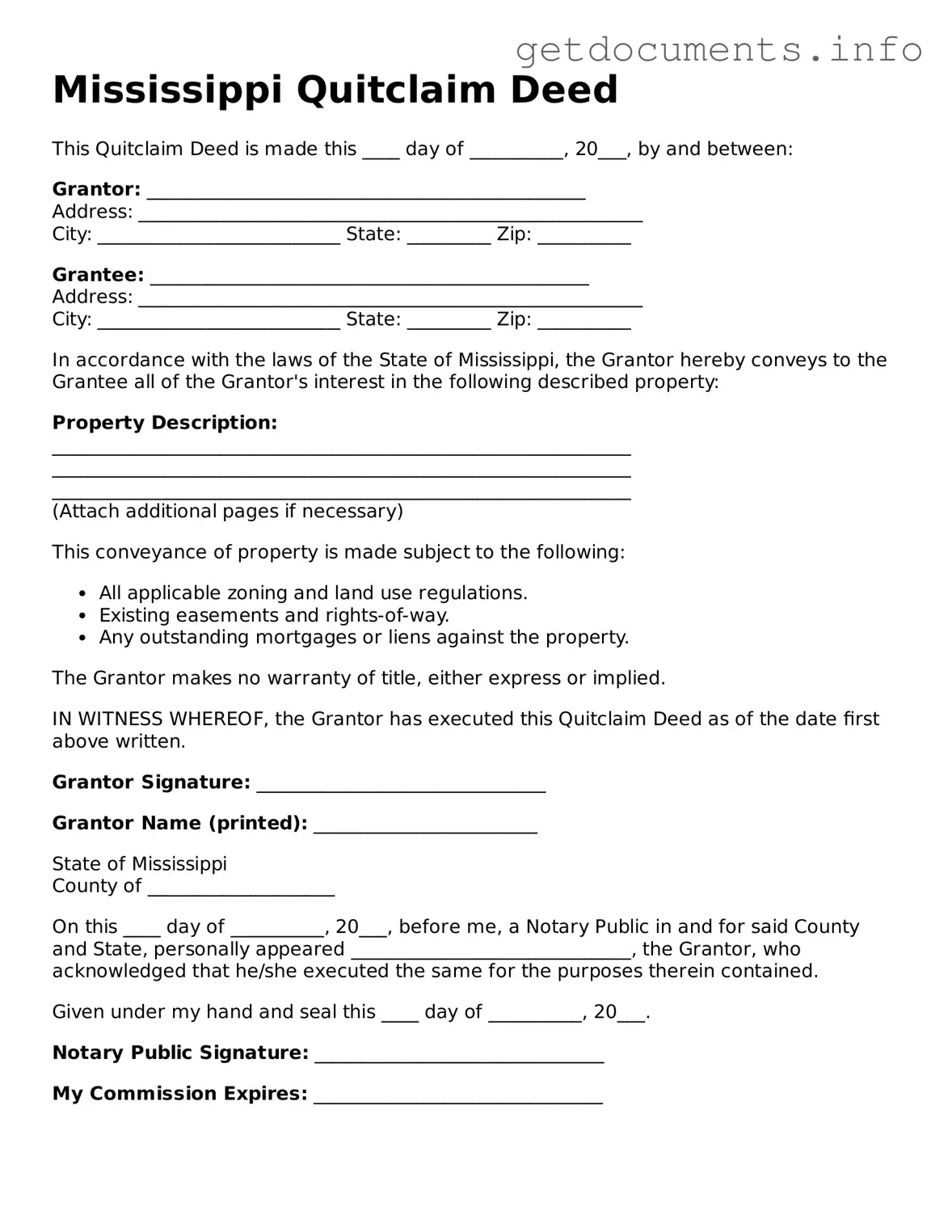Free Quitclaim Deed Template for Mississippi
A Mississippi Quitclaim Deed is a legal document that allows a property owner to transfer their interest in a property to another party without making any guarantees about the title's validity. This type of deed is often used in situations where the parties know each other, such as family transfers or divorces. Understanding the implications of this deed is crucial for ensuring a smooth property transfer process.
To fill out the Mississippi Quitclaim Deed form, click the button below.
Access Quitclaim Deed Editor

Free Quitclaim Deed Template for Mississippi
Access Quitclaim Deed Editor
Got places to be? Complete the form fast
Fill out Quitclaim Deed online and avoid printing or scanning.
Access Quitclaim Deed Editor
or
⇩ PDF File
